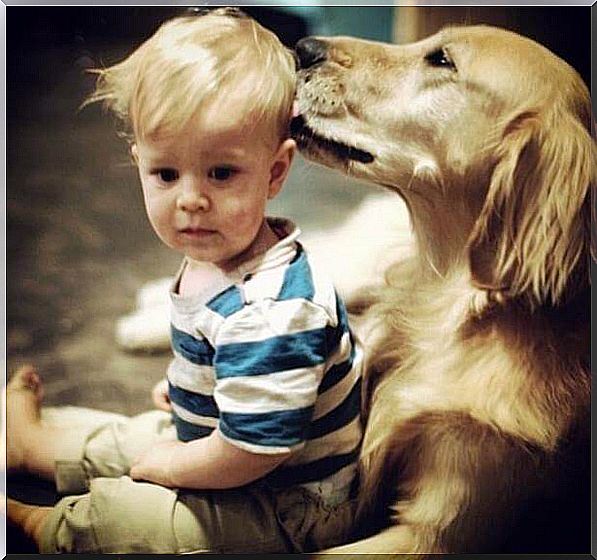Your Best Friend Is Also Aware Of Things

If you share your life with one or more dogs, you have probably asked yourself the following questions: What is hiding behind his gaze? How can they understand so much? Are they really intelligent beings…? Do they have a conscience?
For the first time, neuroscientists have looked at these questions in an attempt to unravel some of the questions that have always been present in the speeches of dog lovers.
To do this, they subjected a group of dogs to an MRI scanner to observe the behavior of their brains, as is normally done with humans. The results were very revealing.
A consciousness similar to that of a child
Before we get to neuroscientist Gregory Burns’ conclusions, let’s talk a little bit about what consciousness is. How can we describe it?
Consciousness is that knowledge we have of ourselves and the world around us, formed in turn by a sense of morality which consists of knowing what is right and what is wrong and knowing the world in which we are take part, integrating a sense of ethics.
Now we will move on to Dr. Burns’ results, which revealed that dogs have a consciousness comparable to that of a child.
Their brains are rich in dopamine, a neurotransmitter that works in the caudate nucleus and brainstem, just like in humans.
In people, the caudate nucleus means that we can anticipate things that are happening around us: knowing that company is good, that we need tenderness to be happy, and that certain situations can cause discomfort in people. others and in ourselves.
In other words, dogs have a refined cognitive connection, which allows them to recognize that certain situations are linked to certain emotions.
In addition, they are able to recognize their own emotions, but they can also recognize that of others. Has it ever happened to you to feel the closeness and concern of your pet, when you were sad?
However, the brain structure of the caudate nucleus is not the only structure similar to that of humans. Indeed, many other parts of the brain activate in the same way as ours.
Dogs smell, dream, reason, they are afraid of loneliness and are able to develop simple programs to achieve basic goals.
Scientists talk about a concept called “brain homology”, which allows them, for example, to establish rudimentary associations in the face of certain behaviors. If we are not at home they know that they are going to feel lonely, that they are not going to have affection, nor food…
Dogs are emotionally attached to us, far beyond the practical or instrumental sense. Think of those cases where lost dogs manage to find their owners even though they have moved out of the village or town.
Scientists speak of a bond, of a union that continues to be present in them, even beyond the death of their owners, where the grief of this loss is usually clearly visible in our pets.
The ability to experience positive emotions, such as love and attachment, shows that dogs have a level of wisdom comparable to that of a human child.
All of this leads us to reflect on a lot of things. Indeed, they are able to give us emotional support without words, as sincere as that of one of our friends.
Plus, believe it or not, dogs suffer just like us when they are rejected or abandoned.
So remember that friend who is always at your feet and who observes you with respect, because he is aware of being happy to be living with you.









